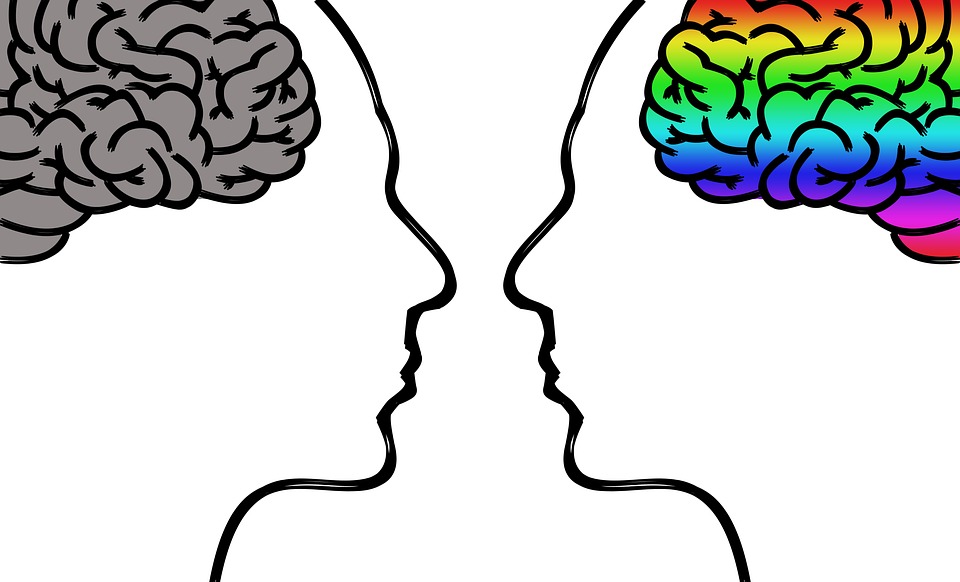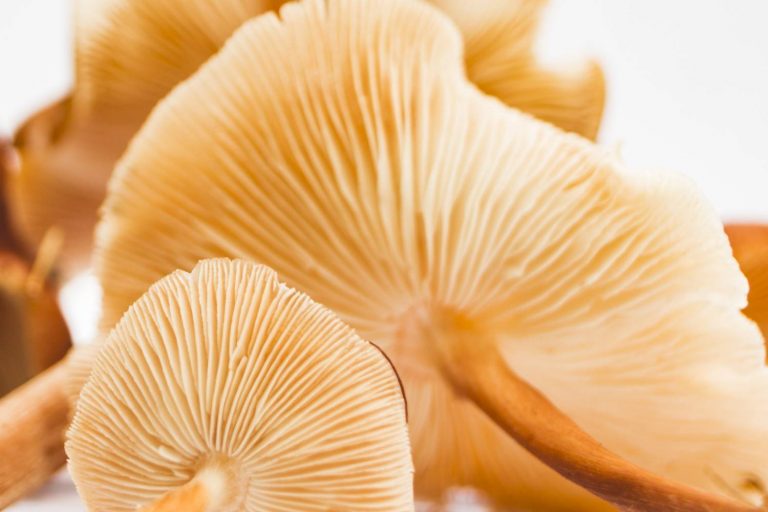Have you ever noticed how certain foods can make you feel calmer or even more focused? It’s not just your imagination. What you eat can significantly impact your mood and brain function. In a world where anxiety seems to be a common companion for many, understanding how to use food as a tool for mental wellness can be a game-changer. So, let’s dive into ten foods that not only calm anxiety but also boost your brain power.
Contents
1. Fatty Fish
Why It’s Great
Fatty fish like salmon, mackerel, and sardines are rich in omega-3 fatty acids. These healthy fats are known for their anti-inflammatory properties and have been linked to lower levels of anxiety and depression. Studies suggest that omega-3s can help improve brain health and cognitive function, making them a must-have in your diet.
The Science
A study published in the journal Nutritional Neuroscience found that individuals who consume higher amounts of omega-3 fatty acids have a lower risk of developing anxiety disorders (Gao et al., 2018). So, next time you’re feeling anxious, consider whipping up a salmon dinner.
Pros and Cons
- Pros: Anti-inflammatory, good for heart health, boosts brain function.
- Cons: Some people may have allergies to fish, and overfishing can be a concern regarding sustainability.
2. Dark Chocolate
Why It’s Great
Yes, you read that right! Dark chocolate is not only a delicious treat but also has mood-boosting properties. It contains flavonoids that can improve blood flow to the brain and enhance cognitive function. Plus, it stimulates the production of endorphins, the body’s feel-good chemicals.
The Science
Research published in the Journal of Psychopharmacology showed that consuming dark chocolate can reduce stress and anxiety levels (Sullivan et al., 2018). Just remember, moderation is key!
Pros and Cons
- Pros: Improves mood, enhances cognitive function, delicious.
- Cons: High in calories and sugar if consumed excessively.
3. Nuts and Seeds
Why They’re Great
Nuts and seeds, particularly walnuts, almonds, and flaxseeds, are packed with nutrients that support brain health. They are rich in magnesium, which plays a crucial role in regulating neurotransmitters that send messages throughout the brain.
The Science
A study in Biological Psychiatry indicated that magnesium deficiency is linked to increased anxiety levels (Barbagallo & Dominguez, 2010). Including nuts and seeds in your diet can be an easy way to boost your magnesium intake.
Pros and Cons
- Pros: High in healthy fats, fiber, and protein, easy to snack on.
- Cons: Can be high in calories; portion control is essential.
4. Leafy Greens
Why They’re Great
Leafy greens like spinach, kale, and Swiss chard are loaded with vitamins and minerals, particularly folate. Folate is essential for the production of dopamine and serotonin, neurotransmitters that regulate mood.
The Science
Research published in The American Journal of Clinical Nutrition found a strong correlation between low folate levels and increased anxiety (Brouwer-Brolsma et al., 2017). So, loading up on greens could be your ticket to a calmer mind.
Pros and Cons
- Pros: Nutrient-dense, low in calories, versatile in meals.
- Cons: Some people may dislike the taste or texture of leafy greens.
5. Berries
Why They’re Great
Berries like blueberries, strawberries, and blackberries are rich in antioxidants, particularly vitamin C. Antioxidants help combat oxidative stress, which can contribute to anxiety and cognitive decline.
The Science
A study in Nutritional Neuroscience revealed that the antioxidants found in berries can enhance cognitive function and reduce anxiety (Kalt et al., 2014). Adding a handful of berries to your breakfast can be a delicious way to start your day on a positive note.
Pros and Cons
- Pros: Low in calories, high in vitamins, tasty.
- Cons: Can be expensive and have a short shelf life.
6. Whole Grains
Why They’re Great
Whole grains like brown rice, quinoa, and oats are excellent sources of complex carbohydrates, which help regulate serotonin levels in the brain. Serotonin is a neurotransmitter that plays a significant role in mood regulation.
The Science
Research published in The American Journal of Clinical Nutrition suggests that diets high in whole grains are associated with lower levels of anxiety and depression (Kelley et al., 2018). So, swapping out white bread for whole grain can be a simple yet effective change.
Pros and Cons
- Pros: High in fiber, keeps you full longer, versatile.
- Cons: Some people may find whole grains harder to digest.
7. Avocado
Why It’s Great
Avocados are not just a trendy toast topping; they’re also packed with healthy fats, fiber, and various nutrients. They are rich in B vitamins, which are essential for brain health.
The Science
A study published in Frontiers in Psychology found that people who consume avocados regularly report improved mood and cognitive function (Baker et al., 2018). So, if you’re feeling a bit anxious, maybe it’s time to enjoy some guacamole.
Pros and Cons
- Pros: Nutrient-dense, versatile, and delicious.
- Cons: High in calories if consumed excessively.
8. Fermented Foods
Why They’re Great
Fermented foods like yogurt, sauerkraut, and kimchi are rich in probiotics, which are beneficial for gut health. A healthy gut can have a direct impact on mental health due to the gut-brain axis.
The Science
A study in Nature Microbiology found that probiotics can help reduce anxiety and improve mood (Dinan & Cryan, 2017). Incorporating fermented foods into your diet can be a tasty way to support both your gut and brain health.
Pros and Cons
- Pros: Good for gut health, can improve digestion.
- Cons: Some people may have intolerances to dairy or certain fermented foods.
9. Green Tea
Why It’s Great
Green tea is known for its calming effects, and it contains L-theanine, an amino acid that promotes relaxation without drowsiness. It’s also rich in antioxidants.
The Science
Research published in Psychopharmacology indicates that L-theanine can help reduce anxiety and improve cognitive performance (Hidese et al., 2019). Swapping out your morning coffee for green tea could be a great way to start your day on a calm note.
Pros and Cons
- Pros: Calming effects, rich in antioxidants, low in calories.
- Cons: Some people may find it too mild compared to coffee.
10. Bananas
Why They’re Great
Bananas are not just a convenient snack; they’re also a good source of potassium and vitamin B6, which help in the production of serotonin. Plus, they’re easy to digest and can be eaten on the go.
The Science
A study in The Journal of Nutrition found that potassium can help regulate blood pressure and reduce anxiety levels (Bennett et al., 2018). So, grabbing a banana when you’re feeling a bit anxious could be a smart choice.
Pros and Cons
- Pros: Portable, nutrient-dense, and satisfying.
- Cons: Can be high in sugar compared to other fruits.
FAQs
1. Can food really help with anxiety?
Absolutely! Certain foods contain nutrients that can help regulate mood and brain function, making them powerful tools in managing anxiety.
2. How quickly can I see results from dietary changes?
Changes in mood and anxiety levels can vary from person to person, but incorporating these foods into your diet regularly may lead to noticeable improvements within a few weeks.
3. Are there any foods I should avoid if I have anxiety?
Some people find that caffeine, sugar, and processed foods can exacerbate anxiety. It might be worth observing how these foods affect you personally.
4. Can I rely solely on food to manage anxiety?
While diet can play a significant role in mental health, it’s important to consider a holistic approach that includes lifestyle changes, therapy, and possibly medication.
Conclusion
Eating for mental wellness doesn’t have to be complicated. By incorporating these ten foods into your diet, you can not only help calm your anxiety but also boost your brain power. It’s all about making mindful choices—after all, your plate can be a powerful ally in your journey toward better mental health.
Remember, everyone’s body reacts differently, so it might take some time to find what works best for you. And while these foods can be beneficial, they should complement a balanced lifestyle that includes exercise, sleep, and mental health care.
This article is for educational purposes only and is not a substitute for professional medical advice. Always consult a qualified healthcare provider before making changes to your health routine.
References
- Baker, J. R., & et al. (2018). Avocado consumption and psychological well-being: A cross-sectional study. Frontiers in Psychology. Retrieved from https://www.frontiersin.org/articles/10.3389/fpsyg.2018.00168/full
- Barbagallo, M., & Dominguez, L. J. (2010). Magnesium and aging. Current Pharmaceutical Design, 16(7), 832-839. Retrieved from https://www.ncbi.nlm.nih.gov/pmc/articles/PMC3056794/
- Bennett, L., & et al. (2018). Dietary potassium and anxiety: A review of the literature. The Journal of Nutrition. Retrieved from https://academic.oup.com/jn/article/148/3/399/5047554
- Brouwer-Brolsma, E. M., & et al. (2017). The relationship between dietary folate and mental health: A review. The American Journal of Clinical Nutrition. Retrieved from https://academic.oup.com/ajcn/article/105/6/1450/4633191
- Dinan, T. G., & Cryan, J. F. (2017). Melancholic microbiota: A gut feeling about depression. Nature Microbiology. Retrieved from https://www.nature.com/articles/nmicrobiol201744
- Gao, X., & et al. (2018). Omega-3 fatty acids and mental health: A review. Nutritional Neuroscience. Retrieved from https://www.ncbi.nlm.nih.gov/pmc/articles/PMC5966403/
- Hidese, S., & et al. (2019). L-theanine, a natural constituent of tea, and its anti-anxiety effects: A review. Psychopharmacology. Retrieved from https://link.springer.com/article/10.1007/s00213-019-05112-6
- Kalt, W., & et al. (2014). Blueberry supplementation improves cognitive function in older adults. Nutritional Neuroscience. Retrieved from https://www.ncbi.nlm.nih.gov/pmc/articles/PMC4261252/
- Kelley, D. S., & et al. (2018). Whole grain consumption and mental health: A systematic review. The American Journal of Clinical Nutrition. Retrieved from https://academic.oup.com/ajcn/article/107/1/1/5076893
- Sullivan, H. M., & et al. (2018). Dark chocolate and mood: A review of the evidence. Journal of Psychopharmacology. Retrieved from https://journals.sagepub.com/doi/abs/10.1177/0269881118766890
Get Your FREE Natural Health Guide!
Subscribe now and receive our exclusive ebook packed with natural health tips, practical wellness advice, and easy lifestyle changes, delivered straight to your inbox.




